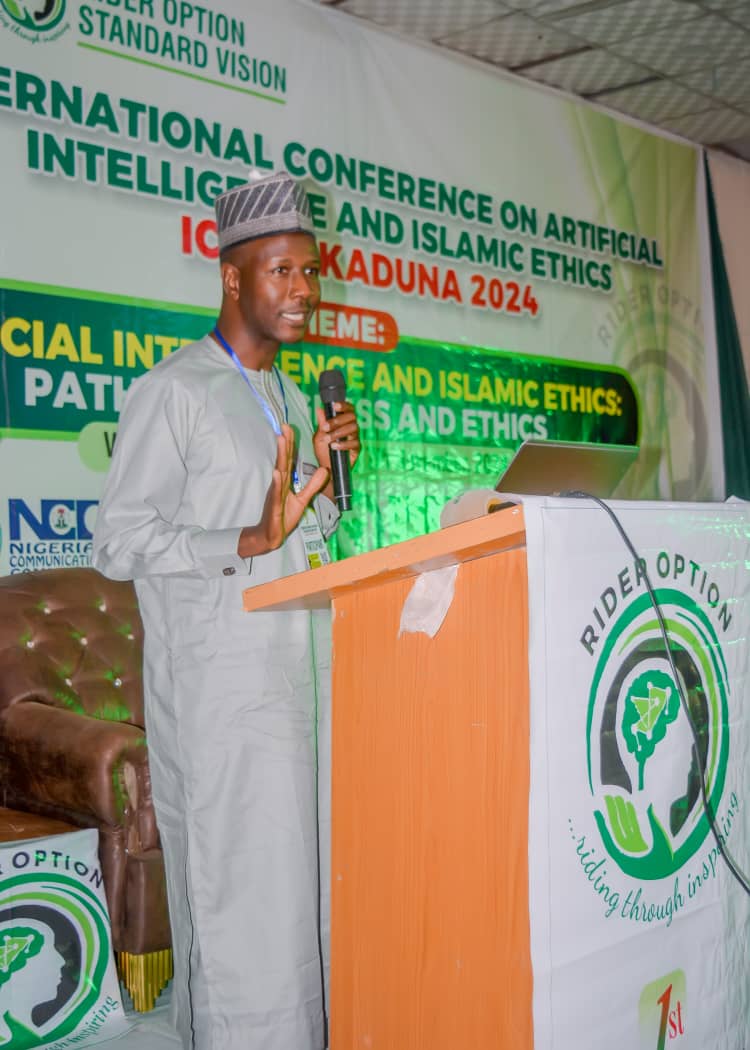News
“Developing Our Own AI: CEO Of KAD ICT Hub Advocates For Muslim And African Communities To Build Homegrown Artificial Intelligence Solutions”

|
Getting your Trinity Audio player ready...
|
“Developing Our Own AI: CEO of KAD ICT Hub Advocates for Muslim and African Communities to Build Homegrown Artificial Intelligence Solutions”
By Yusuf Bashir
KADUNA, Nigeria – In a thought-provoking presentation at the 1st International Conference on Artificial Intelligence (AI) in Kaduna, Engr. Yusuf Bashir, the CEO of KAD ICT Hub, emphasized the urgent need for the Muslim and African communities to take charge of their AI development. Addressing the topic, “The Role of ICT Hubs in Promoting Ethical AI: Strategies for Islamic Communities,” Bashir argued that relying on AI tools created foreign leaves the continent vulnerable and dependent on foreign technologies.
He stressed that it was high time for Africa, and particularly the Muslim world, to develop its own AI technologies to ensure they reflect local values, ethics, and priorities. “Today is our day,” Bashir proclaimed, highlighting the importance of creating AI systems that serve the needs and aspirations of African and Muslim communities, rather than merely adapting to tools designed for different cultures and contexts. According to him, there is a pressing need for African countries to invest in AI research, development, and education in order to build homegrown solutions that promote social, economic, and cultural development on the continent.
Bashir also pointed out that ethical considerations must guide AI development within the Islamic community. He advocated for the alignment of AI technologies with Islamic principles, ensuring that they uphold values such as fairness, justice, and transparency. The CEO noted that Africa’s unique challenges and opportunities require AI solutions that are tailored to local contexts, particularly in addressing issues like poverty, healthcare, and education.
In his address, Engr. Yusuf Bashir called for collaboration among African governments, tech hubs, academic institutions, and the private sector to foster an ecosystem that can effectively develop AI tools and technologies. “We must be proactive in shaping the future of AI,” he emphasized, urging participants to engage with ethical AI development that is culturally relevant and beneficial to African societies.
During the presentation, Bashir also took the time to commend Dr. Grema Kyari, the founder and CEO of Rider Option Standard Vision, for his invaluable efforts in organizing the historic AI and Islam conference. He praised Dr. Kyari for bringing together AI enthusiasts, scholars, and experts from various sectors, noting that such initiatives are critical to empowering the Muslim world in embracing and adapting to new technologies. “Dr. Kyari’s leadership in organizing this conference is a testament to his commitment to advancing knowledge and collaboration i the AI space, particularly in ways that are aligned with Islamic values,” Bashir said.
The conference, which gathered thought leaders, scholars, and technology experts from across the globe, served as a platform for exploring AI’s potential applications in Islamic communities and promoting ethical practices in AI development. It underscored the importance of collective action in leveraging technology for the greater good of society, with a particular focus on how AI can be developed in ways that serve African and Muslim populations.
Engr. Bashir’s call for Africa to take ownership of its AI future resonated strongly with attendees, sparking conversations about how to create more inclusive, ethical, and locally-driven AI solutions. As the conference wrapped up, participants were inspired by the idea that African and Muslim communities could shape their own technological destinies, fostering innovation while staying true to cultural and ethical values.







